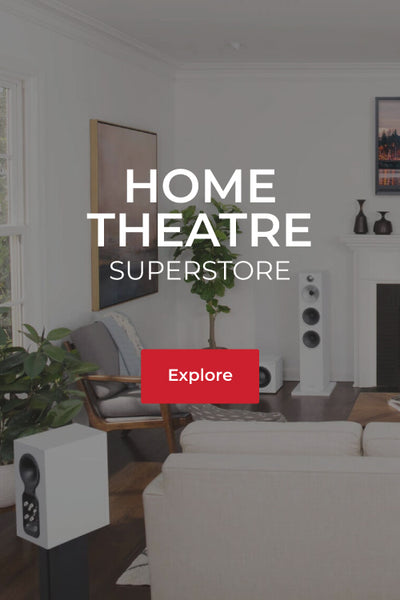
TV vs Projector : What should I buy for my Home Theatre?
Are you having trouble deciding whether to go with a large TV or a projector and screen for your home theatre? On the one hand, projectors have improved in terms of brightness and cost over the last few years. On the other hand, televisions have grown in size and cost, with superb high-definition visual quality. Both technologies have advantages and disadvantages. It's a good idea to weigh both options in terms of cost, image quality, installation, sound quality, and convenience when making a decision.
Below is a list of things to consider when deciding which solution is ideal for your theatre setup:
- Screen Size
The screen is the most crucial aspect of a home theatre. The visuals on projector screens are substantially larger, and users are not limited to a single screen size. They have the ability to create graphics as large as 300 inches diagonally. With such a large screen, you'll get a clean, crisp image, giving you a more theater-like experience. A high-end 4K UHD TV can also provide excellent image quality, but these ultra-large screens can be costly. Furthermore, HDTVs have a set screen size, with common diagonal screen sizes ranging from 13 to 80 inches. Finally, projectors are sometimes preferred because of their capacity to offer huge images with excellent image quality.
- Cost
Cost is the bottom line for many people. The cost of HDTVs and projectors will be influenced by each of the criteria listed below. The higher the brightness and resolution, as well as the image and sound quality, the more expensive it is. HDTVs are generally more expensive than projectors. In fact, for the same price as a 108-inch LED, you can have an HD projector with the same screen size and a good sound system. As a result, projectors are far less expensive than flat-screen televisions.
- Brightness
Projector systems aren't the brightest option when it comes to brightness. The brightness of a projection system is often determined by how dark the room is. The visual quality will be compromised if you have a brightly lit room and are unable to reduce the lights or close the curtains. Onscreen filters for televisions, on the other hand, prevent ambient light from entering the display and interfering with the image. As a result, projection systems cannot compete with LED televisions in this regard.
- Installation
The setup for televisions is much easier. Period. They are simpler to use and set up. Setting up a projector is not difficult, but it may necessitate more effort and planning. For example, before purchasing a projector, you must determine where it will be mounted and the size of the screen you desire. Then there are the wires (HDMI, USB, Audio, and VGA) to go from your receiver to the projector, which adds to the price. A TV, on the other hand, does not require an additional screen or sound system. All you need is an HDMI cable to connect your Blu-ray disc player, and you're ready to watch a movie.
- Sound
TVs are an excellent and convenient alternative because they already have speakers. Speakers are not usually included with projectors, unlike television sets. Although some projectors feature built-in speakers, the sound quality is (typically) poor. So, if you're using a projector, you'll need a receiver and a couple of speakers to go along with it. When comparing TVs and projectors, you may prefer a TV because it can handle basic audio requirements on its own. However, if you want a full home theatre experience, you should consider upgrading your audio with a surround system or a soundbase.
- Lifespan
Lamps are used in projectors to project images onto your screen. Lamps have a shell life of 1,000 to 40,000 hours, and they can soon burn out. As a result, most projector lamps will need to be replaced every year, which can be quite costly. TVs, on the other hand, will survive for roughly 100,000 hours without needing to be serviced.
Concluding, the two most important elements to consider are your price and space available. You'll need a decent-sized room with plenty of wall space and a good sound system if you want to use a projection system. It's a time-consuming and expensive setup, but it may provide your home theatre a more immersive, cinema-like experience. Flat screen TVs, on the other hand, may be your best option if you have a smaller room and can deal with a smaller screen size.




